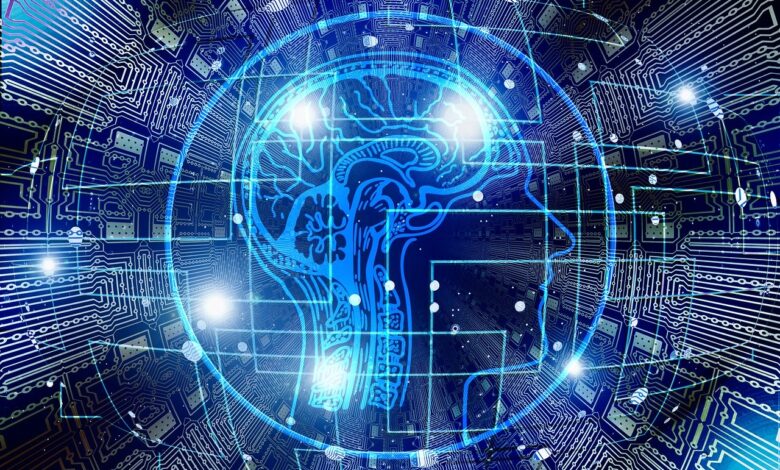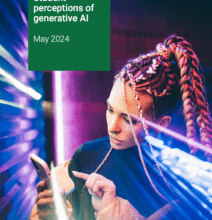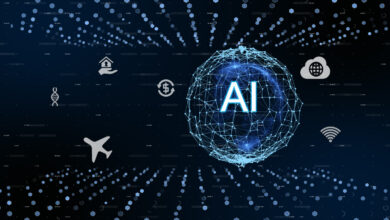Japan PM unveils international framework for generative AI governance – JURIST

Japanese Prime Minister Fumio Kishida unveiled on Thursday an international framework for the regulation and use of generative artificial intelligence (AI) during a meeting at the Organization for Economic Cooperation and Development (OECD) in Paris.
“[G]enerative AI has the potential to be a vital tool to further enrich the world. AI will make great contributions toward finding solutions to various issues including healthcare and climate change, in a way that was unthinkable in the past,” Kishida said. “At the same time, one cannot shed light only on the bright side of generative AI. We must also confront the dark side of AI, such as the risk of disinformation.”
Kishida attended the OECD meeting and gave opening remarks at a side event “Towards Safe, Secure and Trustworthy AI: Promoting Inclusive AI Governance,” which was part of the OECD Ministerial Council Meeting. Recognizing the need to establish international rules for AI governance, Japan led the Hiroshima AI Process in May 2023 during its G7 Presidency. The process met its preliminary results in December 2023 when it gave rise to the world’s first international framework, known as the Hiroshima AI Process Comprehensive Policy Framework. The framework encompasses the “Hiroshima Process International Guiding Principles for All AI Actors” and the “Hiroshima Process International Code of Conduct for Organizations Developing Advanced AI Systems,” both setting down some fundamental principles aiming at reducing specific risks related to the development and use of generative AI.
At the OECD Meeting on Thursday, Kishida announced the kickoff of the Hiroshima AI Process Friends Group, a voluntary framework of members supporting the spirit of the Hiroshima AI Process. The Group has attracted participation from 49 countries and regions, including many OECD members. Kishida committed to work closely with the Friends Group to facilitate the implementation of the International Guiding Principles and the Code of Conduct to address the risks of generative AI.
Kishida emphasized that cooperation with the OECD had been essential in achieving the above global efforts towards AI governance. In 2019, the OECD adopted five value-based AI Principles, which were further updated in May 2024 to address new technological and policy developments. Kishida welcomed the updates, praising them for being a concrete outcome of the OECD. Mathias Cormann, Secretary-General of the OECD, appreciated Japan’s efforts and stressed the importance of implementing the Hiroshima AI Process. OpenAI CEO Sam Altman also attended the event online, where he emphasized the importance of the Hiroshima AI Process, the International Guiding Principles and Code of Conduct.
Kishida also announced Japan’s plan to provide technical support to risk reduction related to generative AI, including establishing the Global Partnership on Artificial Intelligence (GPAI) Tokyo Center.
Regulators worldwide have been grappling with generative AI governance. In October 2023, U.S. President Biden signed an Executive Order establishing new standards for AI safety and security, aiming to protect Americans’ privacy and equity while bolstering innovation, competition and U.S. leadership.
In China, seven ministers jointly published an Interim Measures for the Management of Generative AI Services in July 2023, setting out the basic rights and responsibilities of generative AI providers and users; in February 2024, its National Cybersecurity Standardization Technical Committee further released a Basic Security Requirements for Generative AI Services, putting forward the basic requirements for the safety aspects of generative AI services.
Earlier this year, the European Parliament approved in March a landmark Artificial Intelligence Act, the world’s first comprehensive regulation on AI by a major regulator, which established obligations for AI based on its potential risks and level of impact.
On March 21, 2024, the UN also adopted a draft resolution on AI, led by the U.S. and backed by more than 120 other member states, highlighting the “respect, protection and promotion of human rights in the design, development, deployment and the use of AI” and recognizing AI’s potential to accelerate the reaching of the UN’s 17 Sustainable Development Goals.



